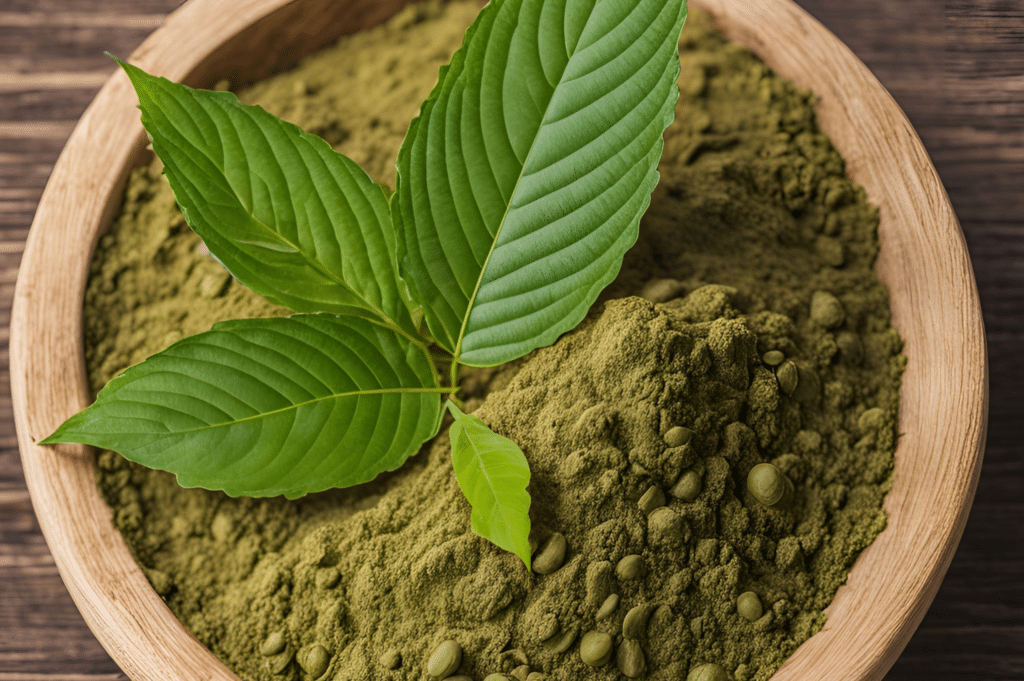
Learn why this herbal Kratom supplement is causing controversy and it’s legal status.
Several modes of effective, evidence-based opioid addiction treatment have helped millions. However, the herb kratom is not on this list. Some homeopathic and holistic practitioners may suggest using kratom to aid opioid withdrawals, but there are many potential risks. Despite the legal status of kratom, it is vital to learn and understand what this herb entails.
Please note: The recommendation to use or not use kratom varies by the medical provider. The medical community is aware of enthusiastic kratom users who believe it has helped them overcome specific ailments. Without more formal research and testing, this herb is officially a supplement with dangerous side effects and high addiction potential. There are highly effective, FDA-approved addiction treatments that can help those with opioid use disorder.
What Is Kratom?
Kratom is a tree found only in certain countries in Southeast Asia, such as Thailand, Malaysia, Papua New Guinea and Indonesia. The ground, dry leaves make tea, tablets or capsules. They are also edible raw or made into a liquid concentrate. Kratom goes by many names: ketum, kakuam, thom, mambog. The active ingredient is mitragynine.
At low dosage, the kratom effects can act as a stimulant. With the rapid tolerance of continued kratom use or a sedative. People who are advocates of this herb believe that it helps those who suffer from depression, anxiety and pain. A handful of scientists even think that it would be effective in treating people who have opioid addiction.
However, kratom safety concerns curtail its use within medical institutions. A significant topic currently in the news is kratom addiction potential and concerns about dangerous kratom withdrawal symptoms. The Drug Enforcement Administration (DEA) believes that kratom’s use can result in psychological addiction and psychotic behaviors. For these reasons, kratom research and studies are on a “watch” list, particularly for its abuse potential.
Legal Status of Kratom in the US
Kratom legality is an often talked about issue because the laws have changed quickly over the past several years. In America, kratom is legal in many states, and kratom marketing focuses on the potential medicinal uses and notes the “high” it offers. This is because it is for sale as an herbal supplement. Therefore, there has not been enough research and testing to determine whether it is an actual illicit drug.
Kratom is illegal to buy, sell, possess or use in the following states:
- Alabama
- Arkansas
- Indiana
- Rhode Island
- Vermont
- Wisconsin
In all other US states, local laws may vary. While it may be technically legal, the local government imposes regulations.
Legal Status of Kratom Worldwide

Due to kratom and addiction concerns, it is illegal in many countries, including:
- Australia
- Denmark
- Finland
- Israel
- Japan
- Latvia
- Lithuania
- Myanmar
- Malaysia
- New Zealand (unless with doctor’s prescription)
- Poland
- Romania
- Russia
- Singapore
- South Korea
- Sweden
- Thailand
- Vietnam
Countries like Ireland, Italy and the UK have varying rules and restrictions on kratom use and sales. There is also very little information about kratom legality in many African nations and China. However, Thailand recently revised the legal status of kratom, so it may not remain illegal for long.
FDA Concerns about Kratom Use
Kratom FDA approval has been a hot topic for years now. The FDA has several very valid concerns about the safety of kratom. As of now, the FDA has no approved use of this herb. They also urge consumers not to purchase products containing mitragynine and 7-hydroxymitragynine. These are the psychoactive compounds of kratom.
Additionally, FDA kratom concerns include:
- High addiction potential: Evidence shows that the pattern of kratom intoxication and withdrawal symptoms are consistent with other addictive substances. For example, nausea, muscle aches, and intense cravings are similar to opioid withdrawal.
- Not enough regulation: There are no checks and balances in place to regulate the quality and safety of kratom sold in stores. This could cause deadly tainted batches or increased potency, which can lead to fatal overdose.
- Risk of overdose: The risk of kratom overdose is higher than most people realize. The herb is in connection with over 50 deaths across the nation, often mixed with other substances.
- Drug interactions: Many people who experiment with kratom also take other drugs. A potentially fatal interaction may occur, leading to seizures, organ damage and respiratory failure.
Many believe there is still too much unknown about this botanical and how it affects a person’s body. There is no clear evidence that kratom is beneficial when used to treat opioid use disorder, either. Significant safety issues exist, and there is no evidence that it will meet the FDA’s approval standards for addiction treatment in the future.
Emergence of Kratom Addiction
People with opioid use disorder who opt for kratom instead of a proven, safe treatment; find themselves battling kratom addiction. Many began taking the herbal supplement in hopes that it would develop as a pathway to overcome opioid addiction. Unfortunately, the addictive nature of kratom causes them to have intense withdrawal symptoms, becoming dependent on the supplement.
Although there are not many kratom-only addiction treatment programs, there is help. Medication-assisted treatment through a specialized and licensed medical provider can treat both opioid and kratom addiction. Speak with a professional at AppleGate Recovery to learn about the benefits of buprenorphine treatment and other effective addiction treatments. Buprenorphine is a viable option that the FDA has approved.
Suboxone Treatment with AppleGate Recovery
The most commonly known compound of buprenorphine is called Suboxone. This medication decreases the effects of opioid withdrawal and helps to ease the cravings that many patients experience. Less medication is necessary to obtain a “ceiling effect.” This discourages misuse.
Opioid addiction does not have to control your life, and kratom will not benefit you long-term. Our goal is to help you overcome addiction and get on the road to recovery. Give medication-assisted treatment a try if you are ready to make this life-saving decision. Contact us today to learn more on how you can get started.
